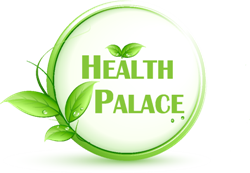Biotics Research
Biotics Research Coq-Zyme-100 Plus 60 Capsules
- SKU:
- 11366
- UPC:
- 780053003318
- MPN:
- BR2617
Description
Biotics Research CoQ-Zyme-100 Plus 60 Capsules:
Indications: Necessary for one of the terminal steps in the electron transport chain in the process of energy (ATP) production). Thus, as a necessary component of mitochondria for the production of energy, CoQ-10 has potential to improve physiologic function in a number of conditions associated with impaired mitochondrial function. Use for increased oxygenation need in cardiac stress or insufficiency, immune dysfunction, high blood pressure, allergies, asthma, diabetes, ulcers, viral infections, periodontal disease, and multiple sclerosis (MS)
Ingredients: Thiamin (B1) (as cocarboxylase chloride) 1.5 mg Riboflavin (B2) (as riboflavin-5-phosphate) 1.7 mg Niacin (as niacin & niacinamide) 20 mg Vitamin B6 (as pyridoxal-5-phosphate) 2 mg Folate (as calcium folinate) 400 mcg Vitamin B12 (as methylcobalamin) 6 mcg Biotin 300 mcg Pantothenic acid (as calcium pantothenate) 10 mg Coenzyme Q10 (emulsified) 100 mg *
| Medicinal Ingredient per dose: | ||
| Coenzyme Q10 (in emulsified form) | 30 mg | |
| Superoxide Dismutase (from vegetable culture) | 30 mcg | |
| Catalase (from vegetable culture) | 30 mcg | |
Suggested dose: 1 tablet three times daily with meals or as directed.
Safety: Biotics Research uses no soy byproducts, no artificial flavors or colorants, no propylene glycol, and no detergents or other artificial surfactants in our proprietary emulsification process. As a cellular component, CoQ10 has two primary functions in the body; first, to act in the transfer of electrons as a necessary part of ATP production, and second, to function as an essential antioxidant. CoQ10 participates in all energy processes in the body, and has been termed “the hub around which life processes revolve in the human body.”3 It also plays a vital role in the cellular membrane, functioning in its stability, fluidity and permeability, in addition to stimulating cell growth and inhibiting cell death.4,5,6 In the body there is no means for storage for CoQ10, thus it must be made or replenished on a daily basis. Its synthesis in the cell mitochondria involves a complex 17-step process, which is dependent upon at least seven vitamin cofactors, including riboflavin (vitamin B2), niacin (vitamin B3), vitamin B6, vitamin B12, pantothenic acid (vitamin B5), folic acid, and vitamin C, along with several trace elements. In humans, the highest concentrations of CoQ10 are found in the heart, liver, muscle, kidney and brain. CoQ10 is an organic, nonprotein molecule which is ubiquitous in the cellular matrix. The fact that it is ubiquitous initiated its primary designation, that of ubiquinone. Ubiquinone and ubiquinol, the reduced form of CoQ10, are known as redox pairs, meaning that in the cellular matrix they cycle back and forth. These two entities are rapidly inter-converted, regardless of the form ingested. Of importance to note is that the body naturally produces ubiquinone and not ubiquinol. Human studies utilizing ubiquinol are lacking, thus claims on its superiority are presently invalid. Conversely, CoQ10 or ubiquinone has been utilized in hundreds of clinical studies, which have demonstrated its benefits for cardiovascular health, as well as for numerous other health issues.

